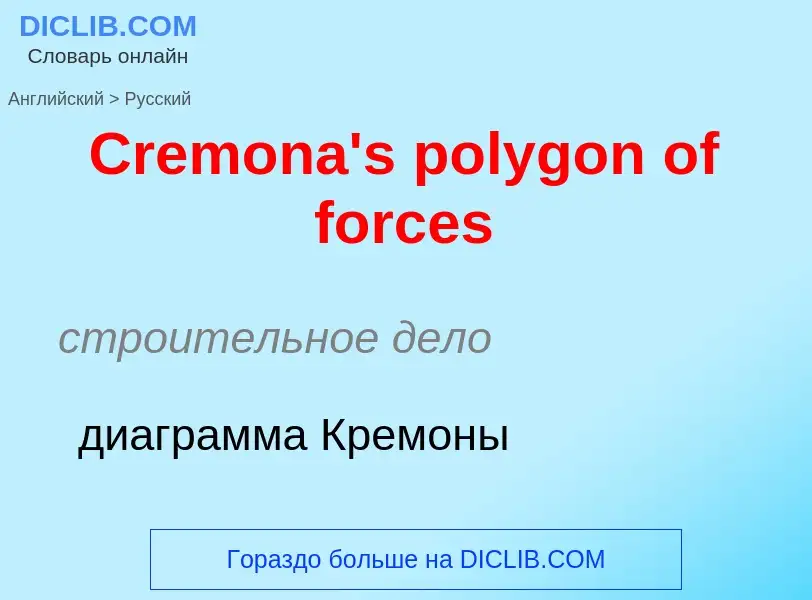Übersetzung und Analyse von Wörtern durch künstliche Intelligenz ChatGPT
Auf dieser Seite erhalten Sie eine detaillierte Analyse eines Wortes oder einer Phrase mithilfe der besten heute verfügbaren Technologie der künstlichen Intelligenz:
- wie das Wort verwendet wird
- Häufigkeit der Nutzung
- es wird häufiger in mündlicher oder schriftlicher Rede verwendet
- Wortübersetzungsoptionen
- Anwendungsbeispiele (mehrere Phrasen mit Übersetzung)
- Etymologie
Cremona's polygon of forces - Übersetzung nach russisch
строительное дело
диаграмма Кремоны
общая лексика
пространственный многоугольник
Definition
.
Wikipedia
The parallelogram of forces is a method for solving (or visualizing) the results of applying two forces to an object.
When more than two forces are involved, the geometry is no longer parallelogrammatic, but the same principles apply. Forces, being vectors are observed to obey the laws of vector addition, and so the overall (resultant) force due to the application of a number of forces can be found geometrically by drawing vector arrows for each force. For example, see Figure 1. This construction has the same result as moving F2 so its tail coincides with the head of F1, and taking the net force as the vector joining the tail of F1 to the head of F2. This procedure can be repeated to add F3 to the resultant F1 + F2, and so forth.









![A uniform ''n''-gonal [[antiprism]] has a 2''n''-sided regular skew polygon defined along its side edges. A uniform ''n''-gonal [[antiprism]] has a 2''n''-sided regular skew polygon defined along its side edges.](https://commons.wikimedia.org/wiki/Special:FilePath/Dodecagonal antiprism.png?width=200)













